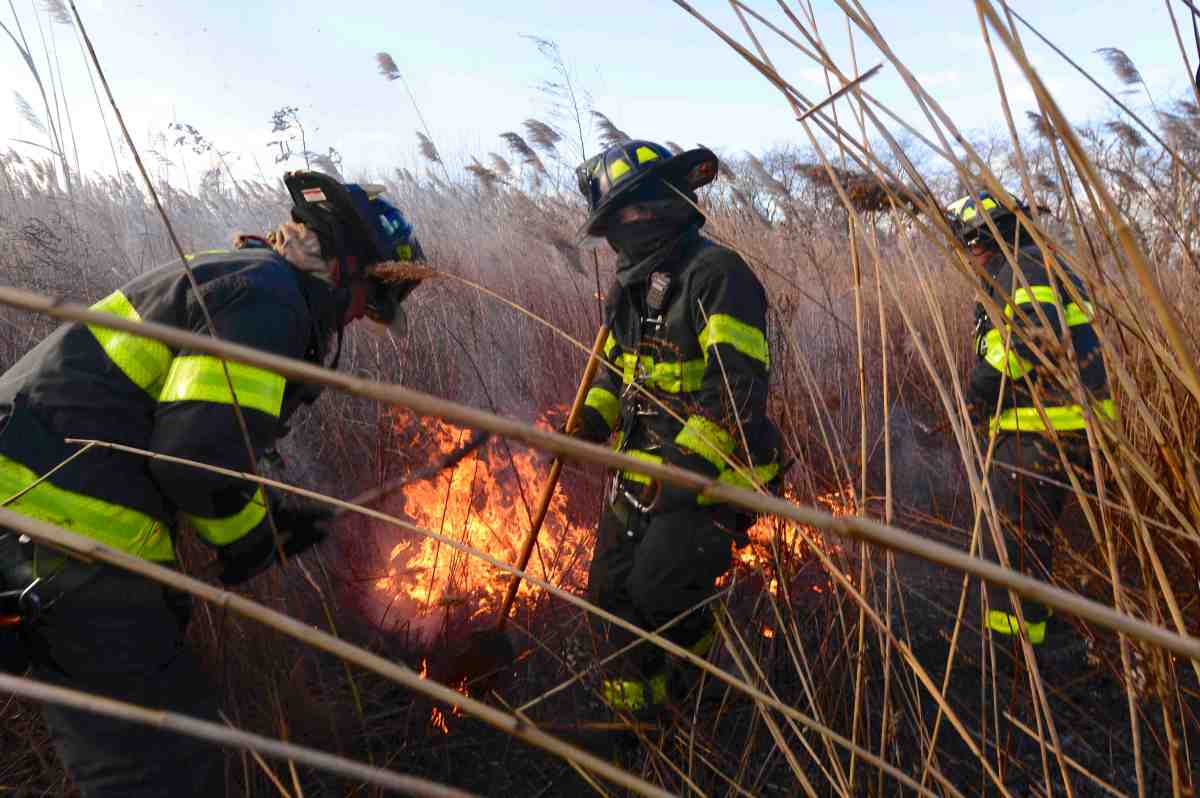As the city continues to stay mum on the plan to encrypt tens of thousands of police radios in New York City, yet another group is expressing concerns that they will also be shut out of the NYPD feed — volunteer firefighters and ambulance companies.
Dozens of volunteer ambulance groups currently respond to help New Yorkers around the city, and they monitor police radios to provide assistance.
Those radios will likely go silent should the NYPD proceed with its plan to encrypt all police radios in 2020, as reported Wednesday in amNewYork.
The NYPD, while not explicitly denying the amNewYork report, said in a statement Tuesday that the department “is undergoing a systems upgrade that is underway for the next 3-5 years.”
“Part of that upgrade includes ensuring radios can support either encrypted or non-encrypted use,” said Sergeant Jessica McCrory, a spokesperson for the NYPD Deputy Commissioner of Public Information. “The Department constantly evaluates technology capabilities and safety measures, and once upgrades are complete, will determine encryption best practices based on safety needs of the city and law enforcement best practices.”
Some companies also have access to the FDNY radio feed. The Fire Department’s radios are capable for encryption, but officials there say they have no plans to do that. Even so, the NYPD and FDNY commanders would still need radios capable of communicating with each other.
All news organizations would potentially be locked out if the encryption plan goes forward. Many get their early tips of breaking news from listening to police radio scanners or following services which have such access.
Many advocacy groups have weighed in after amNewYork’s report, including the Committee to Protect Journalists, which issued the following statement: “CPJ is looking into this, and we have also shared it with the US Press Freedom Tracker.”
When Police Officers Rafael Ramos and Wenjian Liu were shot to death in 2015, the Bedford-Stuyvesant Volunteer Ambulance Corps was able to quickly respond to the scene because they heard emergency calls on the police radio.
“That’s how we responded so rapidly to them,” said Antoine Robinson, commanding officer and CEO of the Bed Stuy Volunteer Ambulance. “That’s how we get our jobs, but you know the police have to do what is best for the public and police department. No matter what they do, we still have to answer our call and obtain information we need.”
Robinson said he plans to speak to the NYPD to see what can be done to maintain communications.
“We used to sign out radios, but they stopped doing that, so may be something else can be worked out,” Robinson said.
The Central Park Medical Unit, an all-volunteer ambulance unit serving Central Park and the surrounding streets, was able to save the life of a man injured by a home-made bomb in 2016. They were able to get to him quickly because they heard the call on NYPD radio.
Volunteer rescuers have been concerned about losing radio access for some time amid rumors about encryption.
Danny Cavanaugh, president of the Volunteer Fireman’s Association of New York, said volunteer companies around the city have expressed their concerns previously, but received little response from the NYPD.
“We want to maintain the relationship we have always had, and we look forward to continuing it,” Cavanaugh said. “We always come to the aid of the police and hope we can continue to do that.”
Travis Kessel, chairperson of District 4 New York State Volunteer Ambulance and Rescue Association, said it is essential that volunteer units closely with the police department and render aid in a timely manner.
Kessel, who works with the Glendale and Ridgewood Volunteer Ambulance Corps, said he has a close relationship with the NYPD, but losing the radio would make it difficult for the corps to respond to police emergencies.
“Since we’ve existed, we’ve been part of every large scale event in city – every blizzard, heat emergencies – to obviously larger events like 9-11. Those open lines of communication to assist, then NYPD and FDNY and other agencies – losing that line would be devastating,” Kessel said. “Our ability to help in a moment’s notice, by monitoring those radio frequencies and through media channels, allows us to bring aid quicker allows us to have that inside knowledge that knowing what type of resources are needed.”
Councilman Donovan Richards, chair of the Public Safety Committee, said he and all other elected officials were taken aback by the radio encryption plans — but he’s “not shocked” to hear the NYPD doing this in secret.”
“Anything that goes backward and kills transparency in this city with the NYPD is not good for the public,” Richards said. “We are very interested in hearing from the NYPD – this is not good for democracy.”
Despite Mayor Bill de Blasio saying he would speak with Commissioner Dermot Shea about the radio encryption and loss of transparency, his office has yet to reply for comment.



































